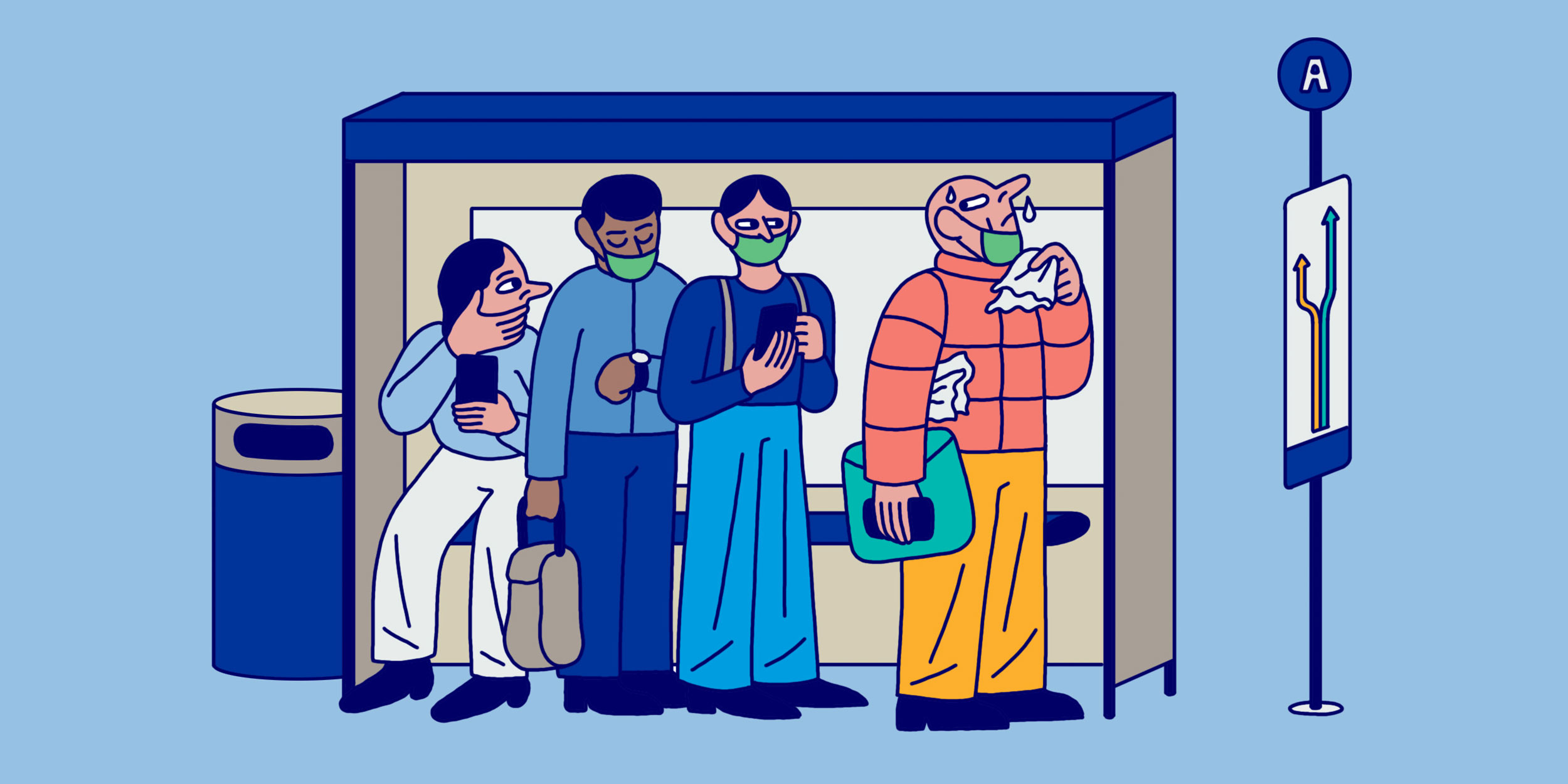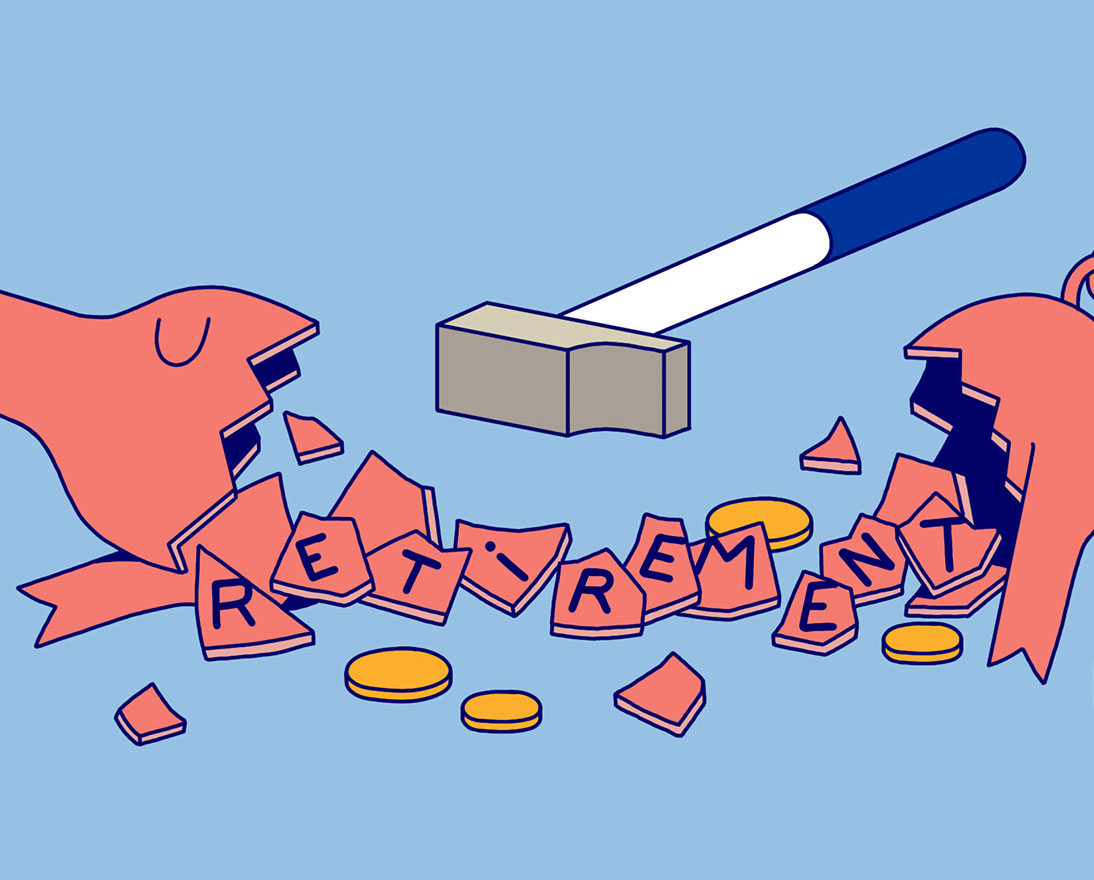Will you go into work when you are unwell after coronavirus?
RiskArticleOctober 30, 20205 min read
Zurich Insurance Group (Zurich) has come together with VICE to look at how coronavirus should see the death of presenteeism
How many times have you woken up feeling like your energy has gone but instead of calling in sick you have necked some medicine and dragged yourself into work anyway? Or you have felt like you are coming down with something at work but instead of going home and resting you have cracked on with things because you know your boss would not appreciate it if you leave?
Because if either of those things sounds familiar, there is a word for it - presenteeism - and nearly 90% of respondents to a survey conducted by the Chartered Institute of Personnel and Development in the UK said they had seen it in their workplace and it is estimated to cost economies billions each year in lost productivity and unnecessary sick days.
Presenteeism can have a negative impact on our lives and not just at work. Professor Gordon Clark, Professorial Fellow at Oxford University, told VICE: “Presenteeism basically represents the phenomenon that people expect and understand that they have to be at work come what may. As a consequence, they compromise on family life, child care and their own physical and mental well being to be there.”
This is not just because of the workers thinking they need to perform. “There is among some corporations practices of scoring people on ‘are they present or not?’ as well, which reinforces it. There is a sense that both sides of the picture take work ethic as being expressed in presenteeism, that is the problem”, Clark added.
Turning up to work when we are ill can be bad for everyone. How many times have you seen one person come into work ill and then within a week several other people pick up the same bug? Andrea Steer, senior risk consultant for Zurich UK, told VICE: “For those that are going into a workplace, they may not have any idea over the vulnerability of their colleagues as to who has got a respiratory issue or potentially impaired immune system, because a lot of the time these things are so personal, and managers may or may not know. If you are entering the workplace while you are carrying cold, flu-like symptoms, even coronavirus symptoms, then what does that mean for the people that are around you?”
But the good news is this could be starting to change and a cultural shift is taking place in workplaces which is being accelerated by the coronavirus. The lockdown measures introduced at the start of the pandemic meant that anybody who could work from home should. Offices were left empty and normally bustling cities became as quiet as ghost towns.
The social expectations which once dragged us into work when we were sick, have been turned upside down. We are now expected to either stay away or work remotely if we can. Dr. Stefan Kroepfl, head of life planning and development for Zurich Insurance Group (Zurich), told VICE: “With coronavirus I do see this changing, because if people are being told that they do not have to be in the office, then I think there is much less pressure and much less perceived pressure, right? Because it is all about the perception.”
This change in perception is being driven by bosses trusting workers more. Kroepfl added: “I have definitely seen much more trust. Line managers are not physically supervising their employees any longer so you have to trust them, or it is going to be very hard. In my experience, trust is a reinforcing mechanism: employees that are entrusted feel empowered and they want to pay back on that trust.”
One of the causes for this cultural shift is a change in thinking about why we work. Clark said: “The virus has said; it is actually all about getting the work done, not time at work.”
We need employers to be putting wellbeing at the forefront of the business to tackle this according to Zurich’s Steer: “Wellbeing needs to really be at the forefront of the business. Employer and business attitudes do need to change. In the UK, we face an economic burden from absence through ill health. The whole wellbeing of people and the productivity of people in work is essential.”
But while presenteeism is definitely on the ropes, there are signs it could make a comeback if we are not careful and do not keep our wellbeing ahead of how we think we are perceived.
Nadia Younes, Group head of employee experience, diversity & inclusion, wellbeing for Zurich said: “Presenteeism has taken a new form. There is a digital form of presenteeism that we need to break the mindset of, bad habits of people feeling like they need to always be seen working.”
Younes added: “There's a new stress associated with [remote working] and what we really need to do is shift the mindset, habits and behaviours. Presenteeism needs to die a natural death, it really does. Employees have wanted this to die for decades and organizations have been trying, mostly unsuccessfully, to kill it. The time has come to be intentional in this or we run the risk of simply replacing old school office presenteeism with a new form of digital presenteeism where employees feel the pressure to be always on and available”.



